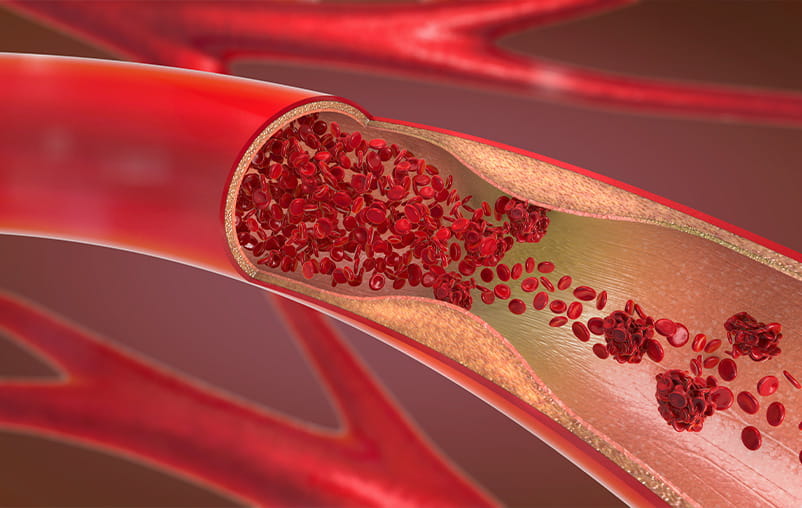The amount of sleep you need each night depends on your age, but everyone needs good sleep hygiene to stay healthy. Sleep deprivation could lead to other health problems down the road, like high blood pressure and obesity.
The chart below shows how many hours of sleep you or your child should be getting depending on age.
| Age Range | Amount of Sleep Needed |
| Birth to 3 months | 14 to 17 hours |
| 4 to 11 months | 12 to 16 hours |
| 1 to 2 years | 11 to 14 hours |
| 3 to 5 years | 10 to 13 hours |
| 6 to 12 years | 9 to 12 hours |
| 13 to 18 years | 8 to 10 hours |
| 18 to 64 years | 7 to 9 hours |
| 65 and older | 7 to 8 hours |
Getting enough sleep may seem like a no-brainer, but many adults struggle to get in a solid eight hours of sleep each night. According to the American Sleep Apnea Association, about 10% of American adults get insufficient sleep every night.
Signs You’re Sleep-Deprived
Do you find yourself yawning at your desk around 3 p.m. every day? Are you snacking more than usual? You might not be getting enough sleep.
Here are some signs that you’re not catching enough Z’s:
- You’re drowsy during the day
- You’re easily distracted or irritable
- You can’t focus at work or school
You might be in bed for eight hours, but that doesn’t mean your body is cycling through the stages of sleep properly.
There are four stages of sleep: N1, N2, N3 and REM. These four stages make one cycle. It takes about 90 minutes for your body to get through one cycle of sleep. Waking up at the end of a cycle helps you feel more energized and ready for your day.
Can Medical Conditions Cause Insomnia?
Some factors that contribute to poor sleep may not be something you can handle on your own. Dealing with issues such as depression, anxiety or menopause may require a doctor’s help. A prescription could help control symptoms that disrupt your sleep.
Medical conditions such as thyroid problems, acid reflux, chronic pain or heart failure can also cause poor sleep. “Sleep restores body function, and when these systems are broken, it’s unrestful sleep,” said Dr. Suhaib Haq, a family practice physician with University Medicine Associates.
Should I Take Melatonin?
If you’re considering taking over-the-counter medications or supplements to help you sleep, make sure you do so under a doctor’s care.
Melatonin, for example, is a naturally occurring hormone that the brain secrets in the evening. However, there’s the potential that a melatonin supplement could interfere with other medications. Other OTC sleep medications could leave you groggy the next day, which can affect your ability to drive.
Women metabolize medication differently than men, so your doctor can give advice about the best course of treatment.
If nothing is helping and you’re feeling excessively sleepy during the day, it might be time to schedule a sleep study.
How to Get Better Sleep
Do:
- Get enough natural sunlight throughout the day. This maintains your body’s natural rhythms.
- Limit caffeine and alcohol intake before bed.
- Turn the A/C or fan on and keep your room cool and dark.
- Read a book or magazine before bed.
Don’t:
- Take naps, especially in the late afternoon.
- Bring electronics like a laptop into bed with you.
- Exercise too close to bedtime.
- Oversleep on the weekends – this disrupts your sleep schedule.
How Sleep Affects Your Overall Health
Getting enough quality sleep on a regular basis can help you live a healthier life, overall. People who don’t get enough sleep are at a higher risk of experiencing high blood pressure, diabetes, heart attack, heart failure or stroke.
“Sleep deprivation is often ignored because it develops slowly, and people try to find ways to compensate,” Dr. Haq says. “Poor sleep can lead to many chronic diseases. By the time we begin to treat poor sleep, we wish we had done something five or 10 years ago so they could have enjoyed their life more.”
Short-term problems can arise from inadequate sleep, too. Feeling drowsy throughout the day can discourage you from doing the things you love and can add stress to your relationships. A lack of focus while driving can lead to car accidents.
Sleep Medicine at University Health
If you're having trouble getting enough quality sleep, the sleep medicine experts at University Health can help. Learn more on our website.





